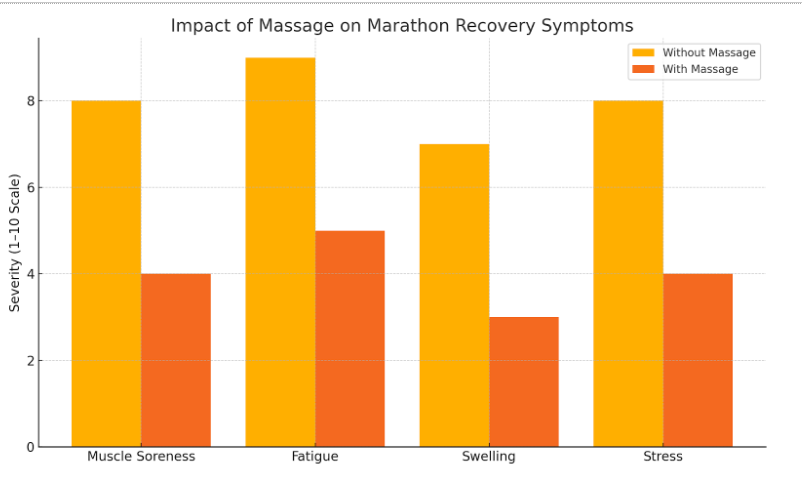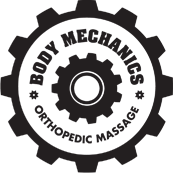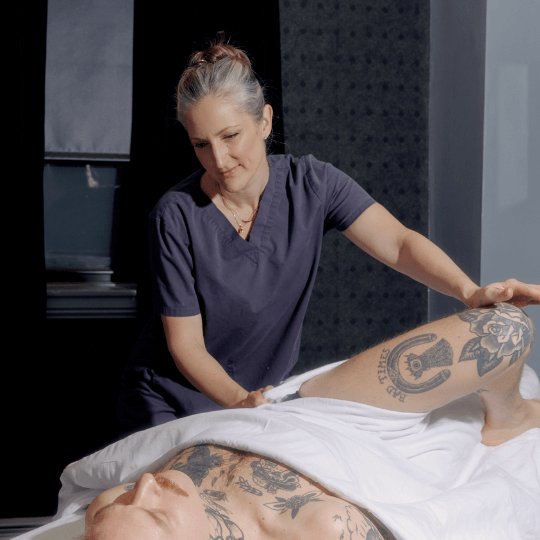Running a marathon takes a serious toll on both the body and mind, requiring months of training and a high level of physical and emotional resilience. Recovery is often overlooked, even though it’s the time when the body needs to heal and reset. Many runners stay so focused on the race itself that they forget how essential rest really is. While nutrition and downtime are important, massage therapy supports recovery by helping the body slow down, repair, and avoid future injuries.
At Body Mechanics, we specialize in orthopedic and sports massage techniques tailored to athletes, including runners. Whether you’re training for your first 5K or recovering from your latest marathon, our therapists provide science-backed care that targets your recovery goals. Explore our dedicated runner’s massage services.
The Physical Toll of Marathon Running
Marathon training and racing place significant stress on the body. Muscles, tendons, and ligaments experience tiny tears as part of the natural process that helps them grow back stronger and more resilient. This often triggers inflammation. Common issues post-race include:
- Delayed Onset Muscle Soreness (DOMS)
- Muscle tightness and fatigue
- Dehydration and inflammation
- Joint stiffness and reduced range of motion
Without proper care and recovery time, these issues can persist or turn into more serious overuse injuries. This is why many athletes benefit from our deep tissue massage treatments, which work deep into the muscles and fascia while also helping the body shift into a parasympathetic state—where real healing takes place.
Massage as a Recovery Catalyst
Massage therapy is more than just a luxury; it’s a critical recovery modality for endurance athletes. Studies show that massage can reduce inflammation and muscle soreness after exercise. According to a 2010 study published by the National Center for Biotechnology Information (NCBI), massage therapy significantly reduces DOMS while improving muscle performance.
This aligns with what we see in our clinic, particularly with those involved in endurance training. At Body Mechanics, we employ targeted recovery techniques—like myofascial release and trigger point therapy—to speed healing while promoting relaxation. Learn how our myofascial release techniques support recovery.

Chart: Impact of Massage on Marathon Recovery Symptoms
1. Muscle Repair and Circulation
Massage does NOT increase circulation, but it does encourage blood flow to soft tissues, delivering essential nutrients and oxygen to muscles in need of repair. This movement of fluid supports the removal of waste byproducts that can contribute to post-exercise soreness. The drawing of fluid to surface structures creates a shunting effect, helping the body clear out what it no longer needs.
For long-distance runners, this means:
- Potentially faster recovery
- Reduced inflammation aka less pain
- Better recovery windows between training sessions
Our therapists specialize in techniques that focus on muscle groups most impacted by running—like hamstrings, calves, glutes, and hip flexors. To get a better idea whether you need deep tissue or Swedish massage post-race, here’s an informative article on how to choose the right one. Our therapists will also assess your needs during the session and recommend what type of massage may be most appropriate for you.
2. Injury Prevention
Massage also helps identify tightness or dysfunction which can be early signs of injury.. For runners especially, compensations in gait and form can arise after a race due to fatigue or inflammation.
Therapists can detect these imbalances early, offering insight into areas of overuse or strain. Combined with stretching and proper biomechanics, massage plays a crucial role in long-term injury prevention. Our stretching techniques blog explores how massage and stretching work hand-in-hand.
3. Mental Reset & Stress Reduction
Completing a marathon is emotionally intense. Athletes often experience a post-race psychological dip due to hormone shifts and fatigue. Massage activates the parasympathetic nervous system, promoting relaxation and emotional stability.
Some runners report improved sleep, mood, and clarity after just one session. If you’re battling post-race blues, incorporating massage can ease anxiety and help regulate your nervous system. We explore more on this in our blog on massage therapy for managing anxiety and depression.
4. Enhancing Recovery with Pre-Event & Post-Event Massage
Massage is not limited to post-race recovery. Pre-event massage can warm up the muscles and promote better movement patterns on race day. Post-event massage focuses on reducing inflammation and supporting repair.
Timing matters:
- Pre-event massage: Ideally scheduled 2 to 3 days before race day
- Post-event massage: Recommended within 1 to 72 hours after completing the marathon
If you’re preparing for a race, check out our pre-event massage strategies.
5. Personalized Recovery Plans
Every runner’s recovery journey is different. Some may bounce back in days, while others need weeks. That’s why at Body Mechanics, our therapists work with each client to build personalized recovery plans based on their marathon experience, injury history, and wellness goals.
If you’re an athlete looking to take recovery seriously, you might also find value in our insights on CrossFit recovery massage techniques, which often overlap with running-related needs.
When to Schedule a Massage After a Marathon
The best time to receive a massage depends on your physical state and goals. For most runners:
- 24–48 hours post-race is ideal for gentle, restorative massage
- 3–5 days post-race is suitable for deeper work, addressing specific muscle tension or any issues that came up on race day.
Some runners also benefit from ongoing maintenance sessions throughout their training cycle, helping to reduce the risk of injury and improve overall performance. Read more about how we support marathon runners year-round.
Conclusion: Reset, Recover, Repeat
Recovery is just as essential as training, and massage bridges the gap between the two. It helps runners reset their body, repair muscular microtrauma, reduce stress, and return to training smarter and stronger.
If you’re serious about optimizing performance and minimizing downtime, massage isn’t a luxury—it’s a strategy.
Ready to prioritize your recovery? Book your massage today at Body Mechanics and get back to doing what you love—stronger, faster, and with fewer aches and pains.

